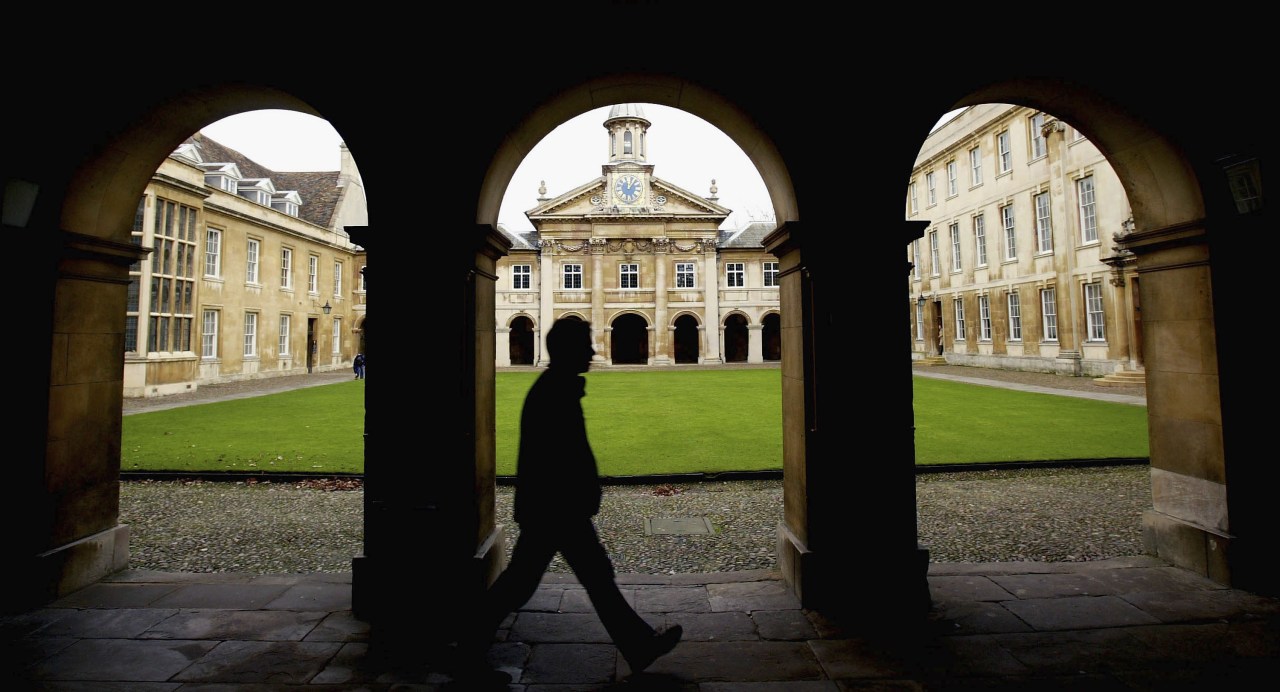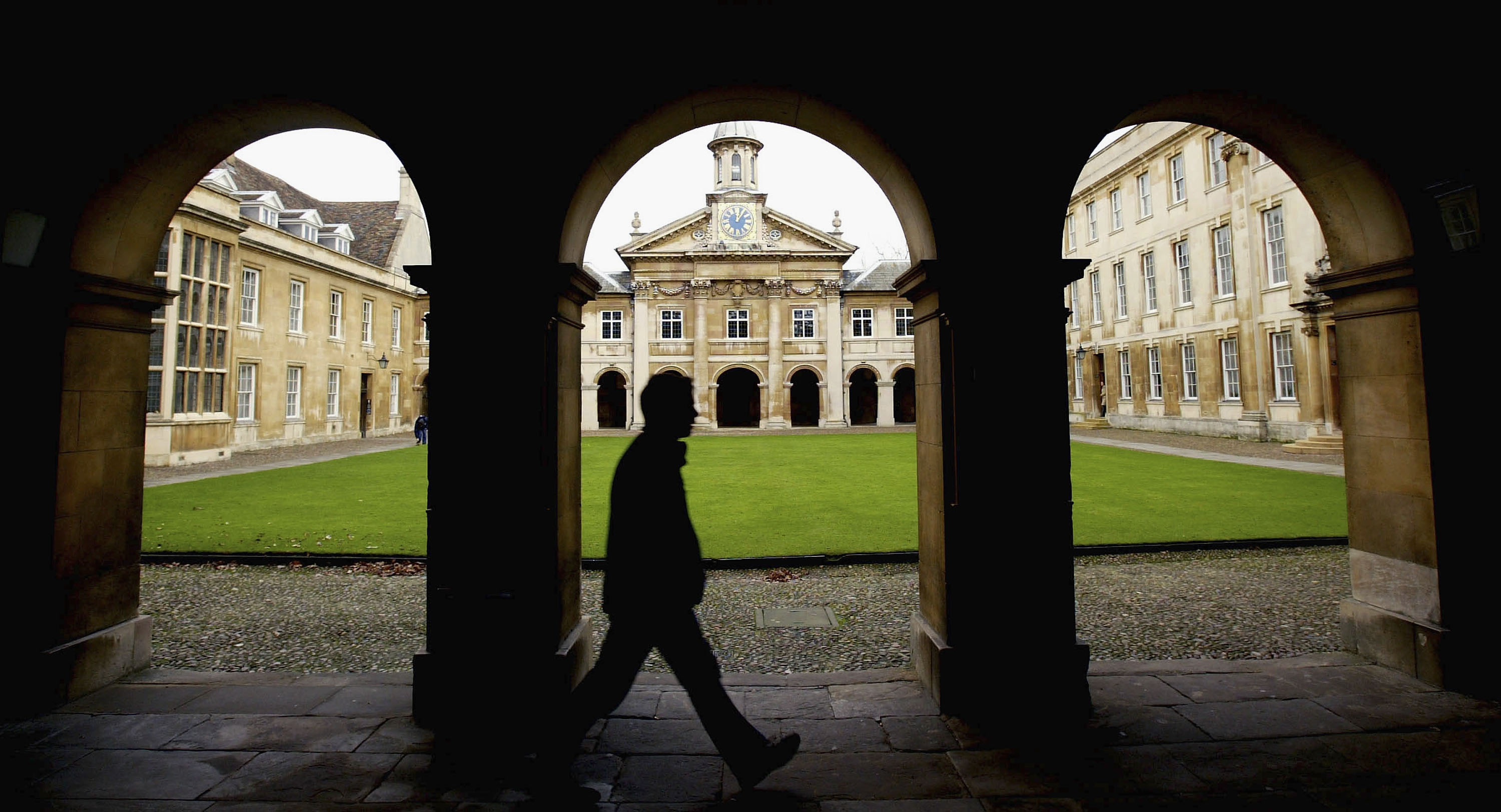Is there anything more pathetic, more risible than rich and privileged Britons whining that their cadre fails to receive a fair shake in the matter of admissions to this country’s most prestigious universities? Oh, sure, I suppose there must be but the smugness and evident sense of entitlement on display in these matters remains enraging.
Today, for example, Anthony Seldon, headmaster of Wellington College, complains that his pupils are suffering unreasonable discrimination. Worse still, apparently, a presumed “bias” against public school pupils is a “hatred that dare not speak its name”. As the Americans say, cry me a river.
The evidence for this notional bias is, needless to say, emaciated. Seldon argues:
Dr Seldon claimed there are 62 pupils at Wellington bright enough to get an Oxbridge interview this year, but said he only expects 20 offers of places to come in.
He said: “From our perspective it looks as if some public school students are being discriminated against at the final hurdle. It’s painful because we are seeing some excellent candidates who would go on to get firsts who are not getting offers, about 10 this year.”
“Was that different to when I was at Oxford 35 years ago? Yes. I don’t think anyone gave a toss back then where you came from, only that you were good enough to go.”
And, actually, that remains the case. Oxford, Cambridge and other elite universities are not actually in the business of admitting candidates they feel are too thick to survive at a rarified academic altitude.
But, look, if the (roughly) 10% of children educated privately gain (roughly) 35% of the places at Oxford or Cambridge only the most blinkered headmaster – even if he is chiefly pandering to parental prejudice – can truly believe public school pupils receive a raw deal.
The long-standing truth is that Oxford, Cambridge and other leading universities could fill their places with qualified candidates at least twice over. There are always plenty of excellent candidates who miss out. That’s the way the university admissions process works.
Indeed, remove from the equation the top 30% (say) of those who gain a place and there is very little difference in aptitude between the remaining 70% of new students each year and many of those who are not fortunate enough to be admitted. There are plenty of people – from all types of background – who are bright enough to go to Oxbridge but who do not get a place. Hard luck stories abound every year and it’s not unreasonable to suppose that even the pupils of Wellington College might be expected to endure their share of disappointment.
Perhaps I should declare an interest. I applied to Cambridge not once but twice and was rejected on each occasion (despite having the grades on the latter occasion). My own fault, I suspect, since I did not perform particularly brilliantly in the interviews. Them’s the breaks.
But I can also understand why exam results are an inadequate means of judging academic potential. And potential is what admissions tutors look for. That makes it not only reasonable but proper to consider other factors. And, yes, educational privilege should be one of those factors.
Because, otherwise, are we really pretending that, say, 80% of the brightest children in Britain are educated privately? That can’t possibly be the case. Will Oxbridge really “get worse” if slightly fewer pupils from public schools are admitted? This too seems highly improbable. On the contrary, the reverse seems likely.
That is, Oxford, Cambridge and other elite universities already receive applications from all the very best privately-educated pupils. There are no precious gems lying undiscovered in those fields. The same, quite evidently, cannot be said of large swathes of the state sector.
There, too many bright children are still put off from applying to top universities. There are many and complicated reasons for that (and not all of them, by any means, are the fault of the universities themselves) but it stands to reason there must be many kids in state-schools who are never told how good they can be or encouraged to pursue their abilities to the fullest extent. That is an appalling waste of talent. Many of those kids would do better at Oxbridge than an average candidate from a leading public school armed with impeccable paper-qualifications.
Expanding the field of plausible candidates – that is, moving beyond a simple academic resume – should actually, all things being equal, improve standards at Oxford and Cambridge.
One irony of this is that Anthony Seldon, I think, understands this. Wellington College already sponsors an academy in the state sector and plans to sponsor three more. Last year Seldon complained that too many independent schools had “lost their moral purpose”. As he put it: “They lead the world in exams, but they are like faith in Matthew Arnold’s poem Dover Beach, with their authority retreating in a ‘melancholy, long withdrawing roar’. “Leadership and courage are needed from public schools – two of their core virtues.”
Again, no-one can sensibly say it is too difficult for privately-schooled pupils to get to Oxford or Cambridge and there is something grim, even grotesque, about these squeals coming from parents prepared to spend £150,000 on their child’s education. They may think that entitles their offspring to a place at the Oxbridge college of their choice but it does not and neither should it. There are, in any cases, plenty of other fine universities for their sprogs to attend.








Comments